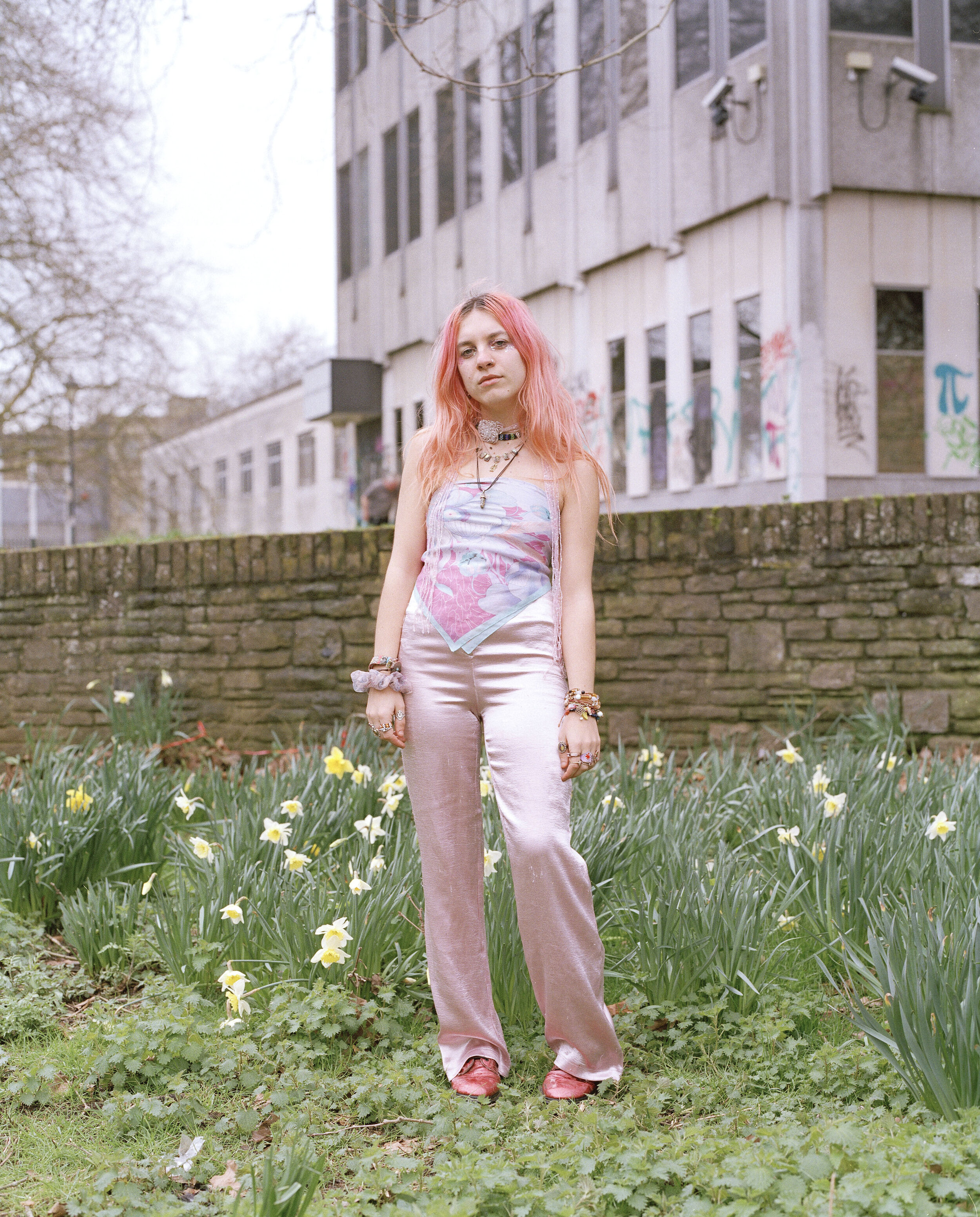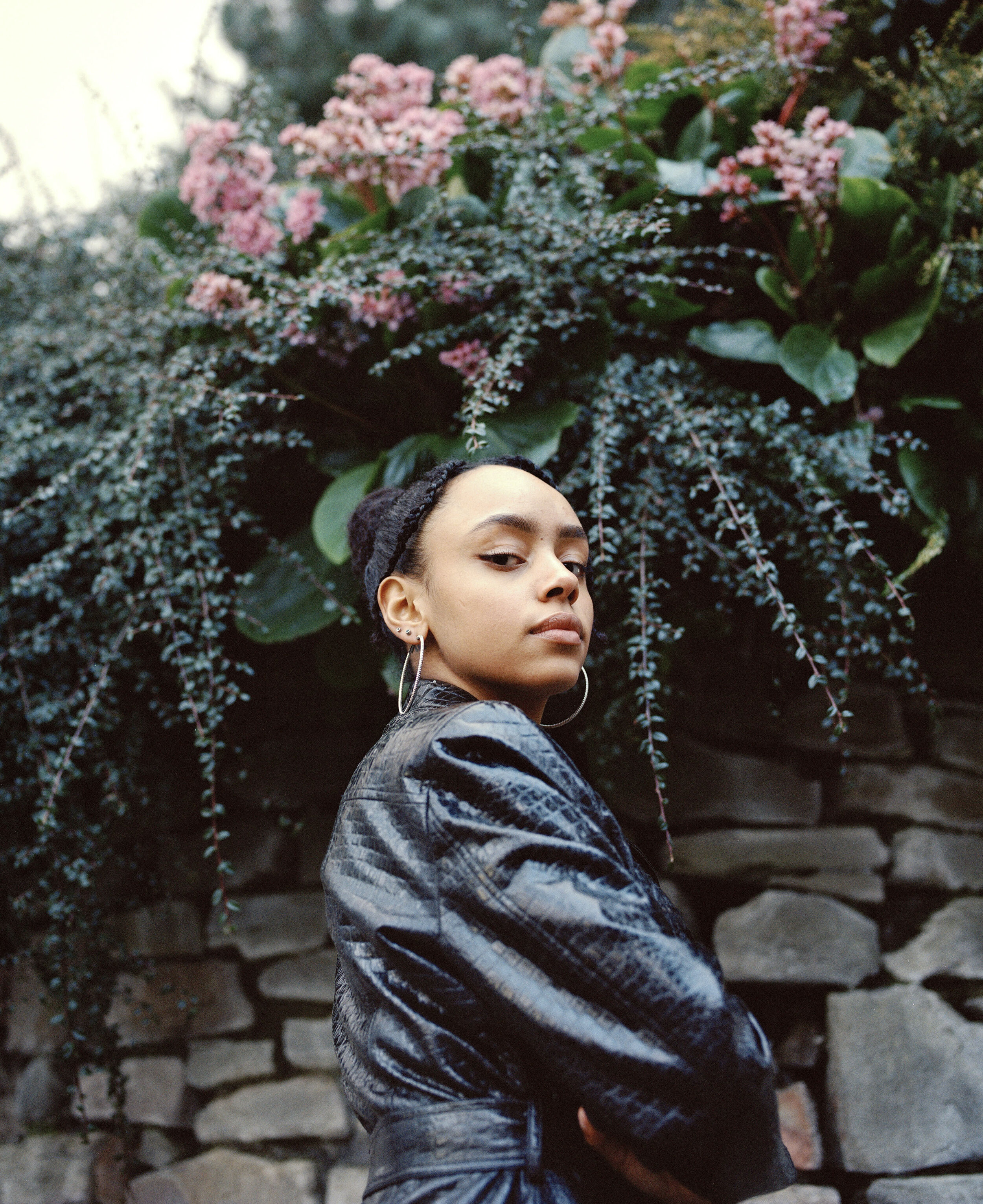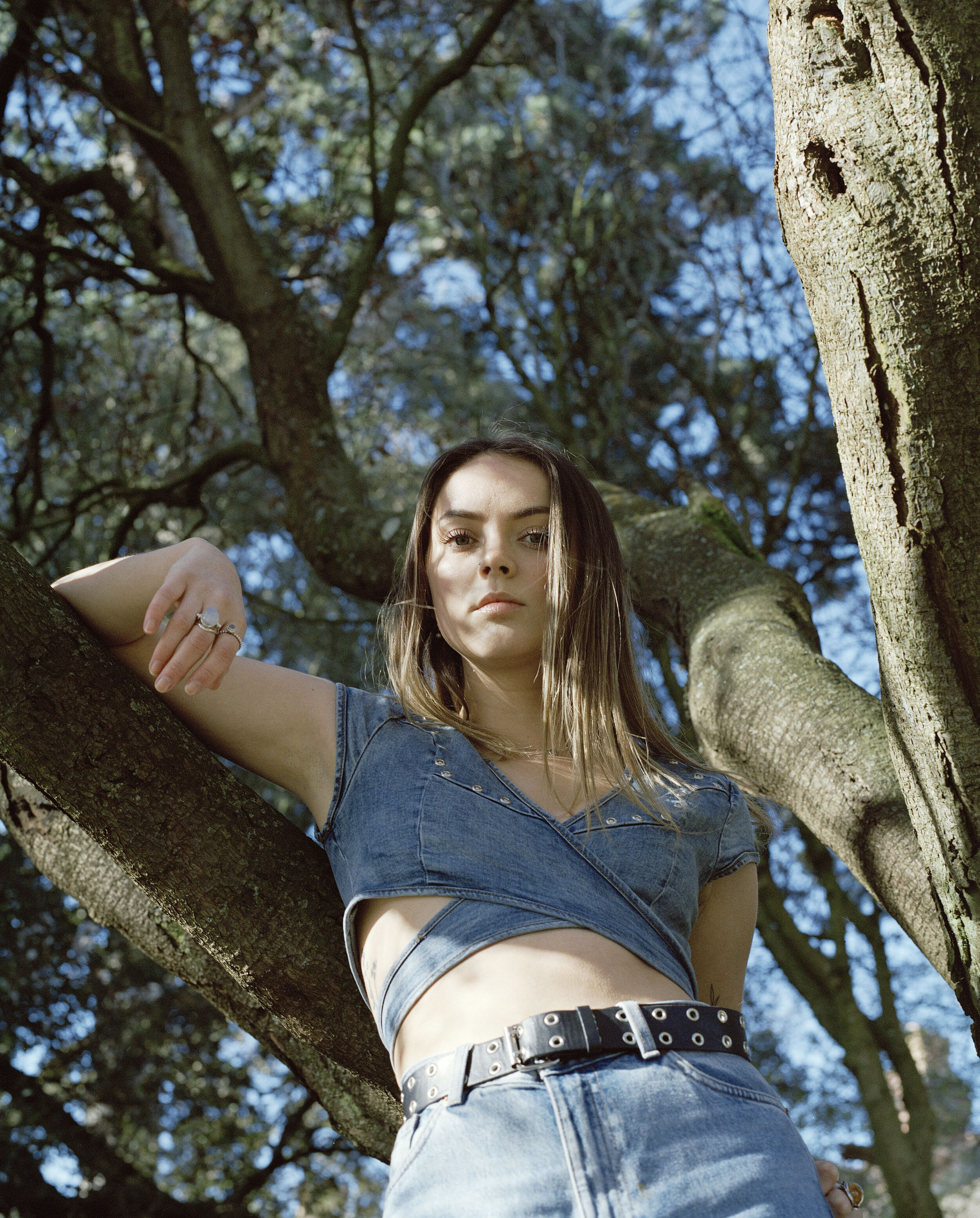Tabatha Lopez Palmby
Meet GFF Talent, Tabatha Lopez Palmby from the University of the West of England, who is finishing her final year in fashion communications. Tabitha’s photography celebrates young women through a series of portraits around Bristol.
Looking to empower and spread a message of body positivity that is not often seen in the mainstream media, Tabatha’s work speaks to a generation of young women who are forging their own path. Read on to learn more about Tabatha’s work and her plans for the future.
What is the most valuable thing you have learnt at university?
The most valuable thing I have learnt, is the importance of working within a team. Collaborations allow for your work to be elevated, as each individual has their own creative spark and insightful knowledge. You must also always pursue your dream goals, no matter how far they seem to reach, as the outcome always makes it worth it!
What was the starting point of inspiration for your final project?
For my final project, I took inspiration from previous projects I had conducted, which focused on photographing people in everyday life settings. I wanted to explore and expand on themes which I felt represented who I am as a photographer, these being: 'youth culture', ‘teenage gaze’ and the 'every day’.
Photographers such as Petra Collins, Chloe Sheppard and Francesca Allen, inspired me to focus on young women in particular. I wanted my final project to have more depth to it than just singular images. I wanted it to hold sentimental value and a strong message which could be timeless. As a result, I started researching about feminism and creating several polls which allowed me to explore the different connotations of what it truly meant to be a woman.
What form will your final project take?
The final piece of my project consists of a book of portraits of girls in their own environments and different areas around Bristol. Each girl is captured in their own attire, as I believe, the way a person dresses and how they decorate their room can speak a thousand words more about who they really are than a portrait alone. Many of the women I cast had just moved to Bristol and were transcending into adulthood by living independently for their first or second time.
The book is intended to give a voice to young women and allows them to use this as a chance to encourage and support other women. The book not only contains images but also contains handwritten text of various women sharing their different experiences, as well as advice, in the hope that someone will read it and relate to it, making them feel less alone. The book is designed to look like a 'scrapbook' or 'diary' in which each page is unique to each individual. By doing so, I believe it becomes more personal. If displayed in an exhibition space, the book would be displayed on a table, accompanied by an estimate of 3/4 medium-sized images with a white frame, which would be displayed on the wall above the book.
What materials have you used and how did you source them?
In order to create a 'scrapbook' look for my book, I looked for different materials associated with the everyday. Some of the materials I used were receipts and envelopes. I wrote quotes from the girls I had interviewed on these. I think by doing so, it helped tie in quite well the themes surrounding 'the everyday' and allowed for a more personal interpretation, that each girl was writing for their own scrapbook/diary.
How has it evolved from your initial ideas and what have you learnt along the way?
My ideas were always quite concise as I had a clear idea from the start of what I wanted to create. However, the project did help with regards to my self-growth. As I photographed many different strangers and built relations with each and every one of them, I was able to grow in confidence, which is something I value the most as a creative. In addition, the book enabled me to explore and experiment with different graphic design techniques and layouts. I consider myself a photographer, therefore, being given the chance to expand on new techniques and gain insightful knowledge into different creative areas was very beneficial.
What are the messages and themes behind your project that you want people to take away? Do explore any topics like diversity, sustainability or politics in your work?
My project is an exploration of what it truly means to be a woman. It touches upon the different ways which women may feel about themselves, and about the social and economical pressure which they feel is put on them through, for example, the media. As the project contains a set of quotes from interviews with different women, it tries to give a positive message using connotations to other women who may be browsing through the book, that it is ok to be who they are and to feel the way they feel in regards to the constraints the world has put on them. It is a book which tries to encourage self-love, as opposed to magazines in the media which may make them feel inadequate.
What’s an aspect of the fashion industry that you’re passionate about fixing or having a positive impact on?
From a photographer's point of view, I see the opportunity for diversity in regards to casting, within editorials and advertisements. Most of the casting I do tends to be focused on street casting. I personally believe strongly, that the industry needs to be able to represent real people and their stories. I think someone who has a story behind them is way stronger than someone who just looks the part. As a photographer, I am all about telling the stories of the individuals I cast. A photograph of an individual in an everyday setting can still promote clothes, and may even help grow sales further, as the viewers, psychologically speaking, form an attachment to the person within the photograph, as they feel they can relate more to the person they are seeing in the advertisement.
What is your plan once you finish your BA?
My main goal is to be able to work as a freelance portrait and fashion photographer and videographer. Although I do also have an interest for casting which is something I believe I could tie in into my freelance work. Some of the companies which I would like to be able to produce work for include I-D magazine, Dazed and 10 Magazine as I believe that these have a similar style of photography to mine. As a freelance photographer, I could also work for various other areas in the industry, such as producing work for modeling/ casting agencies and brands.
I do believe I have quite a mixture of styles in regard to my work, as not only do I look at a sort of ‘documentary’ style approach, but I have recently developed more of a fashion side to my work in regards to posing/studio work. Due to the running themes within my work, such as ‘youth culture,’ I believe my target audience would most likely be of a younger age but also ranging to an older audience too if they are interested in the youth of today and the impact they have on the planet. At the stage I am now, I have had a few offers to work freelance. I do still feel like I really need to build more connections, in order to get myself fully out there as a freelancer, which I know will take time. Therefore in the meantime, after I graduate, my intentions are to be able to get as much experience and knowledge in other fields of the fashion industry to really be able to comprehend every aspect of it which I believe will then reflect within my work. Things such as internships, retail work, assisting work, etc.











